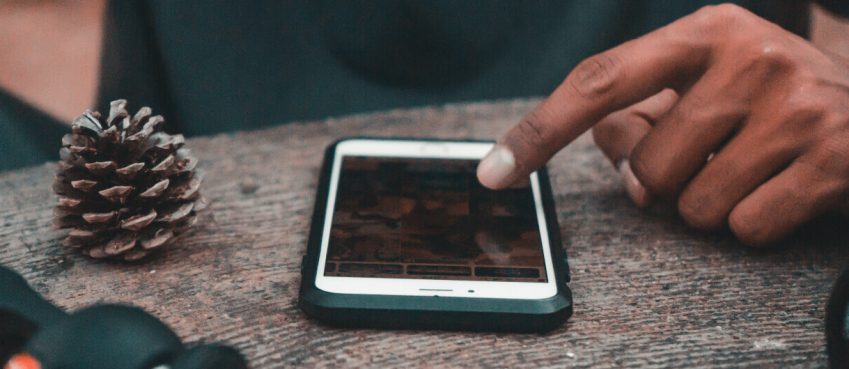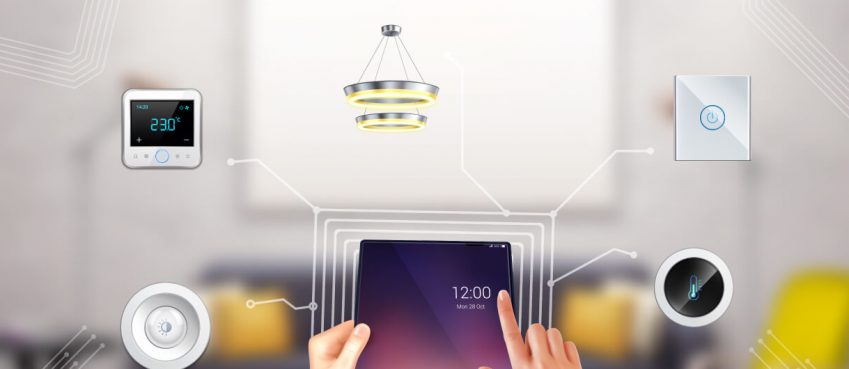
In the last few years, people have become more inclined towards online transactions than using hard cash. It is easy, comfortable, provides flexibility for the users, and during a pandemic situation like COVID-19, it supports a contactless mode of payment.
However, with an increase in online money transfer, there are frequent incidents of cyberattacks and online frauds. Online scams and fraudsters can make the life of a common man miserable because of online theft.
Online scams are increasing at a rate of 10-12 percent every year as more and more companies are turning into eCommerce industries. Therefore, it is critical to follow safety measures while performing an online money transfer.
Here are seven safety tips for a secure Online Money Transfer
1. Use credit cards for online shopping

Many online theft cases reported include hackers stealing debit/credit card details to take out money from the owner’s card. Mostly, the perpetrators hack the card details when the cards are in use during online payments.
To avoid this, next time, use a credit card for online payments as they provide better consumer protection against fraud. As per the Fair Credit Billing Act, the credit card owner is not responsible for the card used for fraudulent purposes.
The liability cap for credit cards is at most $50, and for some, it is zero, whereas, for a money theft in a debit card, one might be liable for the entire amount. On the other hand, recovering fraudulent transaction money from a debit card scam is difficult.
Unless you report the theft of debit card details within two working days, you run the risk of losing up to $500. If you wait for two months, you may not recover anything.
Moreover, the debit card has a direct link to the owner’s bank account, making a debit card fraud dangerous, having the potential to wipe off your entire savings.
On the other hand, the credit card has a spending limit, which restricts the theft to a limit. Also, these days one-time use credit cards are in fashion that is tailor-made for online shopping.
2. Sign-out after every banking session
Maintaining the safety of online money transfer requires one to be very vigilant. After finishing a net banking session, one must always sign out before closing the app or browser.
Small things like opening a banking website on the incognito window and unchecking the “Keep me signed in” option keeps the browser history clear.
Just to be on the safer side, one should frequently clear the browsing history and cache to avoid its access by wrong people.
3. Do not save passwords/credentials
Most people have a habit of saving their bank credentials on the browser and apps just for the sake of fast transactions.
Unfortunately, though, the experience might be fast, in case the phone or laptop gets into the wrong hands, they can misuse these data to make money transfers from the owner’s account.
Prevent this situation by never saving the passwords and essential credentials in the phone, digital wallets, or browser.
If forgetting the password is a concern, use a registered mobile phone and answer security questions to recover the bank’s password or credit card account.
Also, change the password immediately if you suspect that your password is not safe.
Also read: Best Online Courses to get highest paid in 20214. Secure Internet Connection

Never make an online payment using public Wi-Fi and public PCs. It is always advised to use a secure network connection to prevent the misuse of private information.
Public Wi-Fi has fewer security features, so always try connecting with the phone data. But in emergencies, when one has to use public Wi-Fi, make sure it is password protected and, after using it, sign off from the network immediately.
5. Use a strong password
Password theft is common in today’s digital age and is a precursor to other serious crimes. A person’s financial security can strengthen by using strong passwords.
Always use different passwords for different accounts. Also, avoid using apparent words as passwords like your name, your pet’s names, birth dates, etc.
Instead, make them unique by adding special symbols, complex characters, a mix of uppercase and lowercase letters, and keep them long.
Change the passwords every 90 days or so to reduce the risk of online password theft. These days 2FA protection or dual sign-in options help in further securing the login process.
For example, if you want to send money to the UK, instead of using only a single password to login to your online banking account, use an additional layer of authentication through a one-time password (OTP) sent to the registered mobile number.
6. Firewalls and Antivirus
Firewalls help in filtering and blocking threatening communications. Keep the firewall settings on, to stop the malicious websites and viruses.
Always use updated antivirus and firewall settings to ensure that the laptop and phone stay protected from the malware. Avoid opening websites that the firewalls block and that lack security certificates.
Install ad-blocking software that blocks banner ads and pop-ups to prevent the chances of clicking on malicious websites.
7. Only send money to people you know personally
It is okay to send money to family and loved ones. But to prevent any internet scams, avoid sending money to an unknown person.
If your mailbox pops with an email congratulating you on winning a lottery or transferring it to XYZ company, then don’t do it, it is a scam.
These scams can lead to huge financial losses. That is why it is advisable to transfer money to only known people.
Ask your bank manager questions like:
- If the money is transferred and deducted from your account but not credited on the beneficiary account, will you receive the money-back?
- In case of money theft from the account, what compensation will you receive?
Educate yourself on the ongoing scams around the world, read the news, and keep yourself aware so that no one can fool you.
Recently many people lost lakhs of money by sharing their debit card credentials and pins with people who called them saying they are calling on behalf of the bank.
Remember that no bank will call you asking for your bank details and one-time password(OTP).
Also read: Top 10 IT Companies in The World | Largest IT ServicesConclusion
To summarize, the key to safe online money transfer is to be a good observant, use common sense, and strong, unpredictable login credentials to avoid falling into any scams.
Top 10 News
-
01
Top 10 Deep Learning Multimodal Models & Their Uses
Tuesday August 12, 2025
-
02
10 Google AI Mode Facts That Every SEOs Should Know (And Wha...
Friday July 4, 2025
-
03
Top 10 visionOS 26 Features & Announcement (With Video)
Thursday June 12, 2025
-
04
Top 10 Veo 3 AI Video Generators in 2025 (Compared & Te...
Tuesday June 10, 2025
-
05
Top 10 AI GPUs That Can Increase Work Productivity By 30% (W...
Wednesday May 28, 2025
-
06
[10 BEST] AI Influencer Generator Apps Trending Right Now
Monday March 17, 2025
-
07
The 10 Best Companies Providing Electric Fencing For Busines...
Tuesday March 11, 2025
-
08
Top 10 Social Security Fairness Act Benefits In 2025
Wednesday March 5, 2025
-
09
Top 10 AI Infrastructure Companies In The World
Tuesday February 11, 2025
-
10
What Are Top 10 Blood Thinners To Minimize Heart Disease?
Wednesday January 22, 2025







